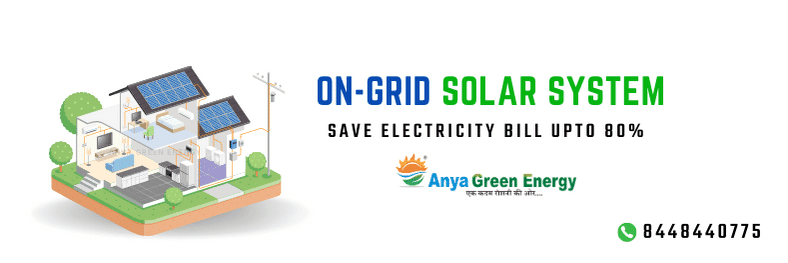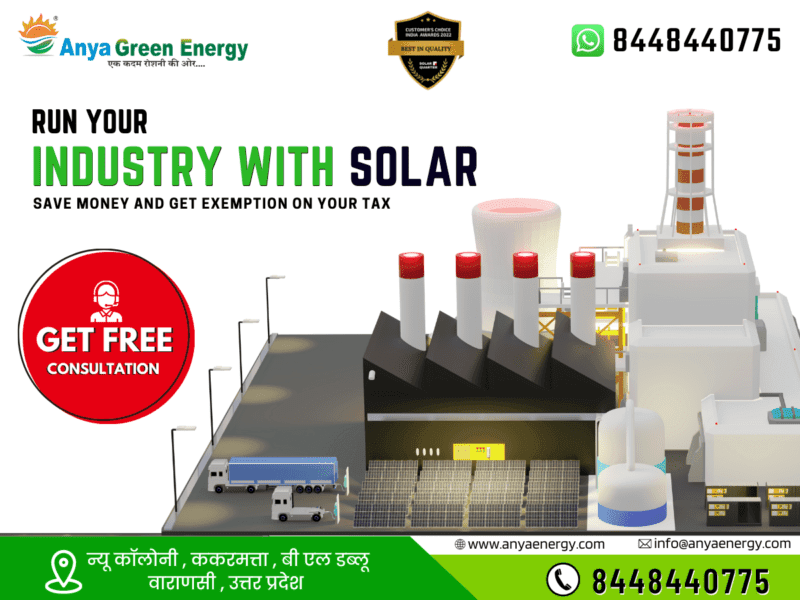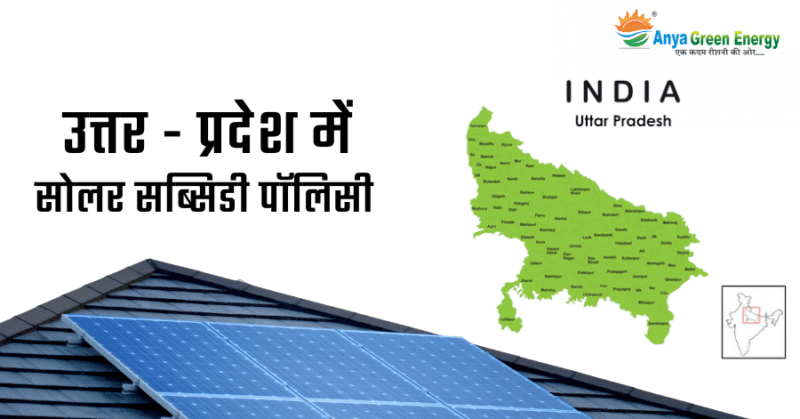ON-GRID SOLAR SYSTEM :
An on-grid solar system, also known as a grid-tied solar system, is a type of solar energy system that is connected to the main electrical grid. This means that the solar panels generate electricity during the day, and any excess energy is sent back to the grid, while at night or when the solar panels are not generating enough power, the system will draw electricity from the grid.
On-grid solar systems are a great option for those who want to generate their own electricity while still having the security of being connected to the main electrical grid. They are relatively easy to install and maintain, and they do not require batteries or backup generators, which can save money and space.
One of the biggest benefits of an on-grid solar system is that it can save you money on your electricity bills. In many areas, utility companies will pay you for the excess electricity your system generates, known as net metering. This means that you can earn money back from your investment in the solar panels.

Another benefit of an on-grid solar system is that it helps to reduce carbon emissions and decrease dependence on fossil fuels. By generating your own electricity from a renewable source, you are helping to lower the demand for non-renewable energy sources, which can have a positive impact on the environment.
However, it’s important to note that On-grid solar systems are not suitable for people who are frequently not connected to the grid. It is because it relies on the grid to function.
Overall, an on-grid solar system is a smart investment for anyone who wants to save money on their electricity bills, reduce their carbon footprint, and contribute to a more sustainable future. With the advancement in technology, the cost of solar panel and installation has been decreased significantly making it more accessible to the common people. Consult with a reputable solar installer to determine if an on-grid solar system is the right fit for your home or business.
GET IN TOUCH
Get Solar Experts Advice
First Ask Questions for On Grid Solar System :
-
What is an On-Grid Solar System?
An On-Grid Solar System is a type of solar energy system that is connected to the main electrical grid.
It generates electricity during the day and any excess energy is sent back to the grid, while at night or when the solar panels are not generating enough power, the system will draw electricity from the grid. -
How does an On-Grid Solar System work?
An On-Grid Solar System works by converting sunlight into electricity through the use of solar panels.
The electricity is then sent to an inverter, which converts the DC electricity into AC electricity, which is the type of electricity that is used in homes and businesses. Any excess electricity is sent back to the grid, and the system will draw electricity from the grid when the solar panels are not generating enough power. -
What are the benefits of an On-Grid Solar System?
The benefits of an On-Grid Solar System include saving money on electricity bills, reducing carbon emissions and dependence on fossil fuels, and contributing to a more sustainable future. Additionally, On-grid solar systems are relatively easy to install and maintain and do not require batteries or backup generators.
-
What are the limitations of an On-Grid Solar System?
The main limitation of an On-Grid Solar System is that it relies on the main electrical grid to function, so it’s not suitable for people who are frequently not connected to the grid. It also does not provide energy independence and does not work during power outages.
-
How much does an On-Grid Solar System cost?
The cost of an On-Grid Solar System varies depending on the size of the system, the location, and other factors. However, with the advancement in technology, the cost of solar panel and installation has been decreased significantly making it more affordable for common people. It’s best to consult with a reputable solar installer to get an estimate for your specific needs.
Where you can use On Grid Solar System :
On grid solar systems, also known as grid-tied solar systems, are a popular choice for homeowners and businesses looking to generate their own electricity while still being connected to the main electrical grid. These systems are ideal for a wide range of applications, and they offer many benefits that make them a great investment.
On Grid Solar System for Home:
One of the best applications for on grid solar systems is for residential homes. This is because on grid systems are easy to install and maintain, and they do not require batteries or backup generators. This means that homeowners can save money and space by not having to install additional equipment. Additionally, on grid systems can save homeowners money on their electricity bills by generating their own electricity and earning money back from the excess energy they generate through net metering.
On Grid Solar System for Industries:

Another great application for on-grid solar systems is for commercial and industrial buildings. These types of buildings often have large rooftop spaces that are perfect for installing solar panels. On grid solar systems can help businesses save money on their electricity bills and reduce their carbon footprint, making them a more sustainable and environmentally friendly option.
On-grid systems are also a great option for community solar projects. These projects allow multiple households or businesses to share the cost and benefits of a solar energy system. With this type of project, the community can generate their own electricity and reduce their dependence on fossil fuels.
In summary, On-grid solar systems are a great investment for homeowners, businesses, and communities looking to generate their own electricity, save money on electricity bills, and reduce their carbon footprint. With the advancement in technology, the cost of solar panel and installation has been decreased significantly making it more accessible to the common people. Consult with a reputable solar installer to determine if an on-grid solar system is the right fit for your home or business.

